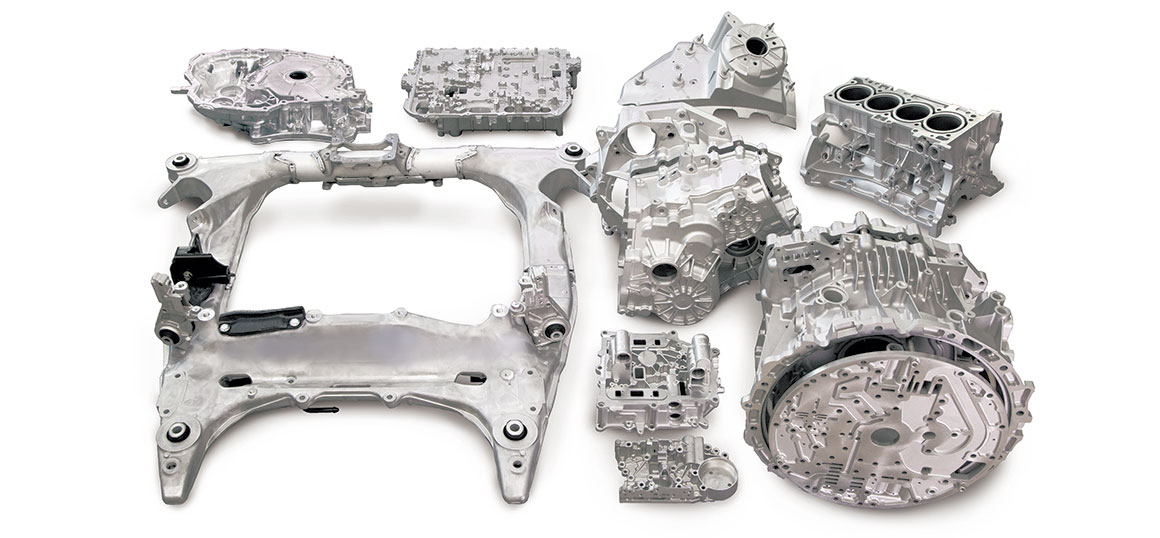Diecasting in Malaysia: Shaping the Future of Precision Manufacturing
Diecasting has become an important procedure in the manufacturing landscape of
Malaysia, serving as an important method for producing precision metal elements.
With the country's growing commercial market, especially in auto, electronic
devices, and consumer goods, diecasting has actually acquired substantial energy
as a result of its capability to create elaborate and top notch elements at a
cost-efficient cost. The diecasting procedure entails injecting liquified metal
right into a mold and mildew under high stress, resulting in parts that are
resilient, light, and extremely detailed. This short article explores the
advancement of diecasting in Malaysia, its advantages, the industries it serves,
and the prospects of this necessary production technique.
Among the key elements adding to the development of
the diecasting industry in Malaysia is the country's sophisticated production
facilities. Malaysia has actually long been a production hub in Southeast Asia,
drawing in worldwide business looking for reputable and efficient production
companions. The accessibility of experienced labor, cutting edge equipment, and
a robust supply chain framework has actually made Malaysia a competitive player
in the diecasting market. This solid foundation enables manufacturers to
generate high-grade diecast components that fulfill worldwide criteria.
Malaysia's diecasting industry offers both regional and worldwide markets,
giving elements for markets that need accuracy, resilience, and intricate
geometries in their components.
The benefits of diecasting are countless,
and they make the procedure particularly appealing for mass production of parts.
Among the primary advantages is the capability to generate detailed shapes with
high accuracy. This is especially valuable for sectors like auto and aerospace,
where components need to meet rigid performance requirements. Diecast parts are
typically solid, lightweight, and resistant to put on, making them suitable for
applications that require durability and dependability. The procedure also
minimizes the demand for extra machining, as diecast components often come out
of the mold with a smooth surface area coating and limited resistances. This
efficiency lowers production time and expenses, which is highly advantageous in
markets that require to manufacture big amounts of parts promptly and
cost-effectively.
The diecasting industry in Malaysia is not practically
producing components; it likewise includes taking on sophisticated technologies
to enhance production effectiveness. As markets remain to demand better, much
faster manufacturing times, and much more complex parts, diecasting
manufacturers in Malaysia have actually accepted automation and progressed
robotics. Automation permits precise control over the diecasting process,
lowering human error and enhancing consistency in production. The use of
robotics for tasks like mold and mildew handling, steel injection, and part
removal additionally improves the performance of the process. Additionally,
Malaysia's diecasting industry has incorporated sophisticated products such as
aluminum, zinc, and magnesium alloys, which are lighter and more powerful than
typical materials. These innovations make sure that Malaysian makers can
generate high-performance parts that satisfy the developing demands of worldwide
sectors. To receive supplementary details please Go Here
The growth of diecasting in Malaysia is likewise sustained by
a solid export market. As the nation's diecasting abilities enhance, much more
Malaysian manufacturers can satisfy the requirements of global customers.
Malaysia exports diecast items to a selection of regions, consisting of North
America, Europe, and Asia, with a certain concentrate on the automotive,
electronics, and durable goods industries. The country's reputation for creating
high-grade, precise parts has made it an eye-catching partner for worldwide
firms wanting to resource trustworthy parts. Malaysia's trade arrangements with
numerous countries and its membership in local companies such as Organization of
Southeast Asian Nations have more reinforced its position as an export hub for
diecast products. As international need for diecast components continues to
expand, Malaysia is well-positioned to capitalize on this chance and enhance its
share of the international market.
Nonetheless, like numerous making
industries, the diecasting industry in Malaysia encounters difficulties that
should be resolved to guarantee ongoing development and sustainability. Among
the main obstacles is the climbing expense of resources, specifically metals
such as light weight aluminum and magnesium, which are crucial for diecasting.
Changes in worldwide steel rates can impact the earnings of makers and make it
difficult for businesses to preserve affordable pricing. To minimize this,
numerous diecasting business in Malaysia are exploring alternate materials and
reusing options to minimize product prices and decrease waste. In addition,
ecological concerns have actually prompted the market to take on more lasting
practices, such as lowering energy intake and enhancing waste administration in
the diecasting procedure. By welcoming sustainability, the Malaysian diecasting
market can continue to prosper while contributing to worldwide efforts to
minimize environmental impact.
Comments
Post a Comment